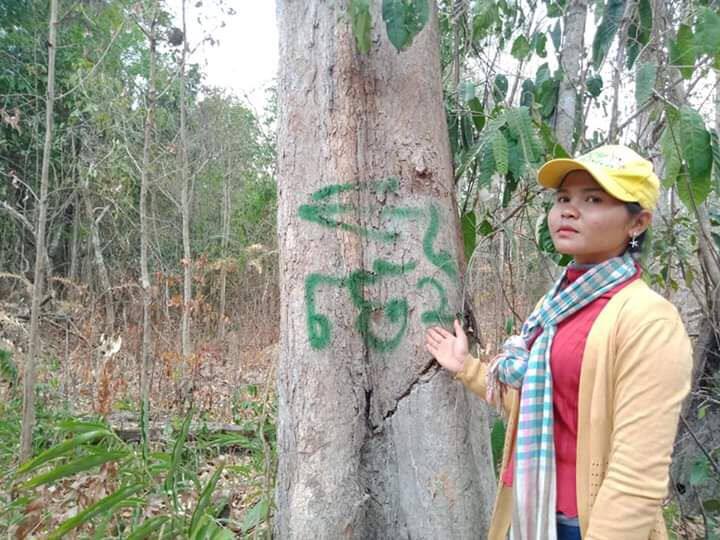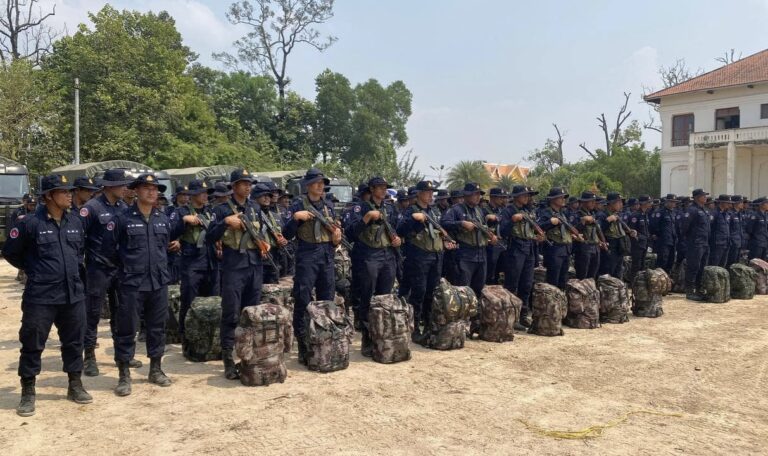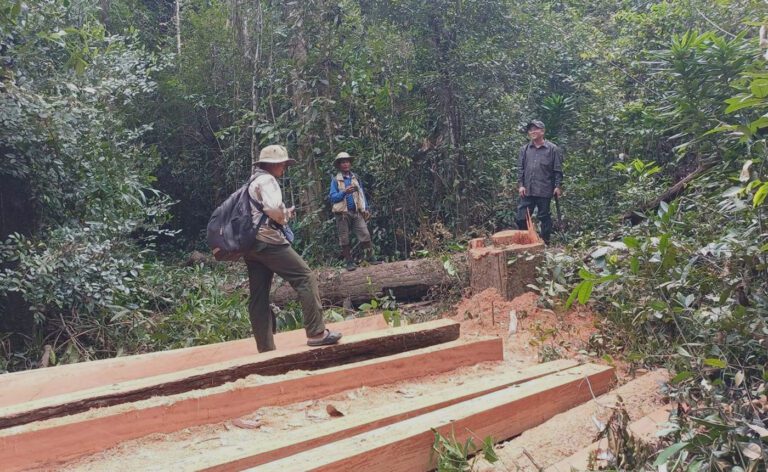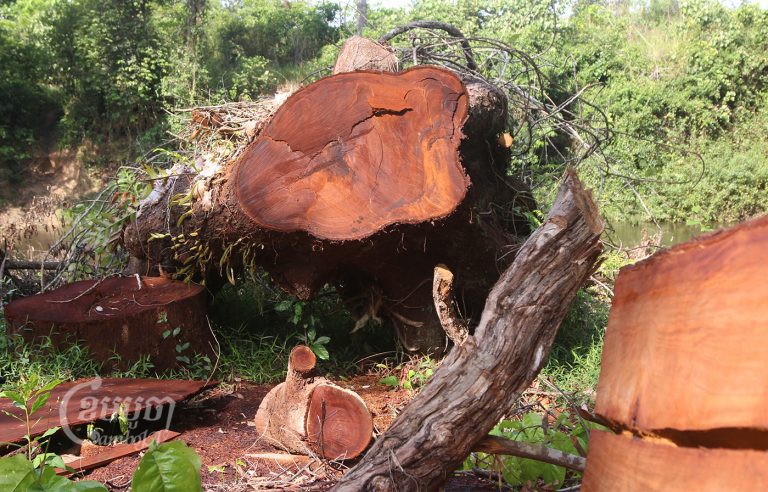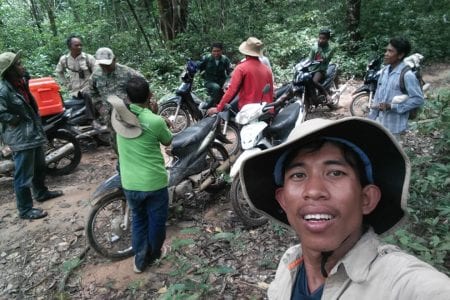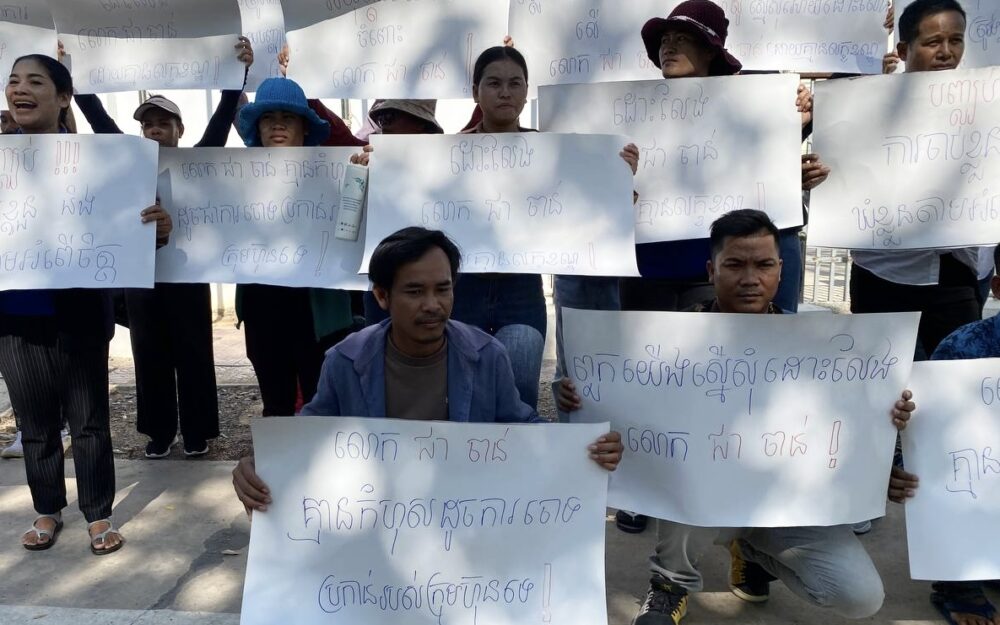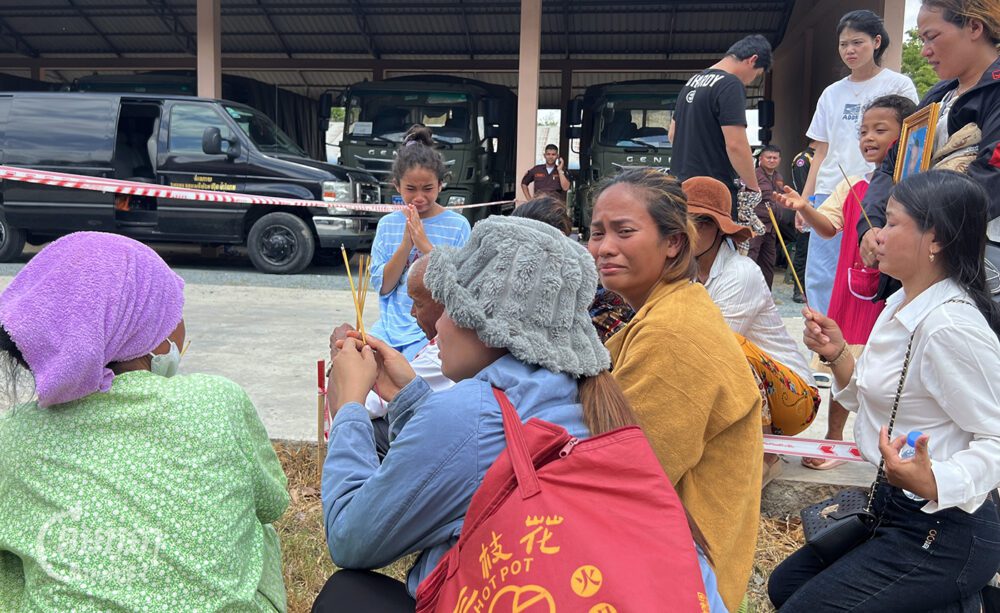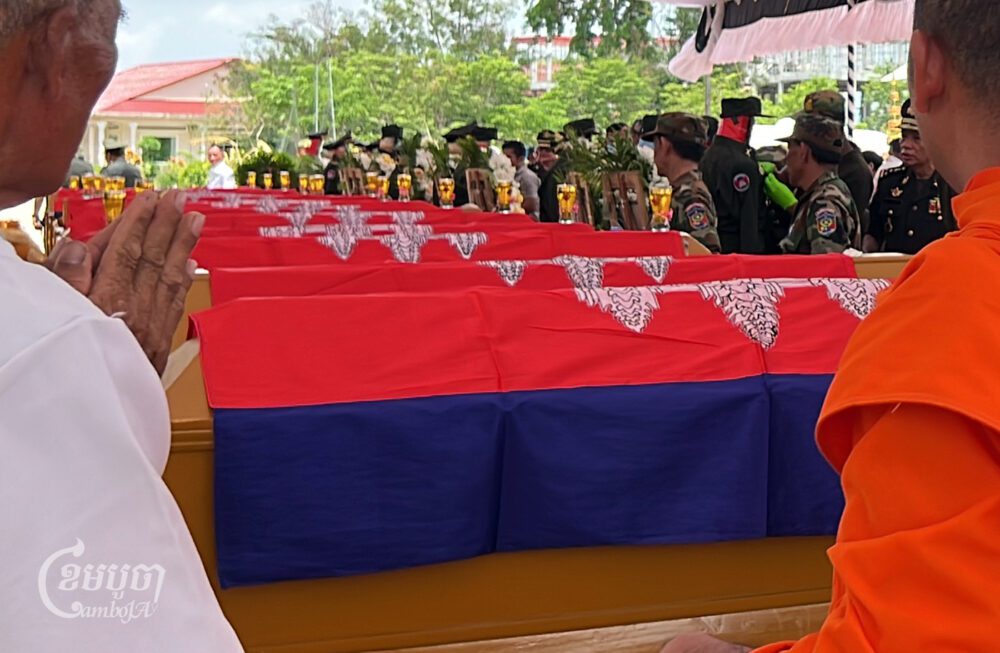When Met Malen was elected as a young community leader in 2018, her parents were worried about the threats and insults that she would receive. The 21-year-old had previously dropped out of school in grade 8, instead choosing to commit her life to the fight against deforestation as part of a team of around 10 to 15 environmental activists who patrol the forest three or four times every month.
“At first, my family and relatives did not support me, because they were afraid, and I am a young girl with a poor education,” she said. “They worry about my safety when I patrol the forest, and the threats, insults, and rumors about me. They really didn’t support me.”
Although the lack of support from her family sometimes made her want to give up, she said, the support she received from working with her team, local authorities and a number of non-governmental organizations including Development and Partnership in Action has been motivation enough.
On each patrol, Malen spends two to three days searching the forest for illegal loggers. Alongside her patrols, she also leads public awareness campaigns in her villages.
“We get a lot of threats from those criminals, they don’t cooperate with us,” she said. “They are not happy with us when we have arguments and remove their sawmills.”
“There have been some threats and insults against my family [at our home] to murder and shoot me if I continue my work,” she said. “My family was really scared, so they ran and closed the door.”
In the face of these threats, Malen asked local authorities for their support. Shortly after, she said, the people responsible showed up once more to her family home — this time to ask their forgiveness.
“The local authorities really support me and give us advice on how to solve those issues, but there are some village chiefs who do not participate with us because they are afraid of losing votes from logger villagers, and they are also afraid for their family’s security if they cooperate with us,” she said.
“I also think I am still young and lack experience. I need to listen to older people’s ideas and discuss any issues before making decisions, because they have full experience,” she said. “I don’t think I am a president who completely knows everything.”
The Phnom Chreap Trey Ksan community is surrounded by three villages in Chrach commune, Chey Sen district, Preah Vihear province and covers 1,300 hectares including mountain ranges, nine waterfalls, birds, and rare wild animals.
To protect this community, Malen said, citizens can benefit from non-timber forest products, medicine, food and vegetables and working as a guide for tourists.
“During my mandate, citizens started to deeply understand the forest and show their love for nature by funding contributions,” she said. “People who did not participate before also came to show support, and logging has decreased from 90% to 20% cases. A lot of NGOs and authorities give strong support in this mission.” This decrease, she said, is her own estimate.
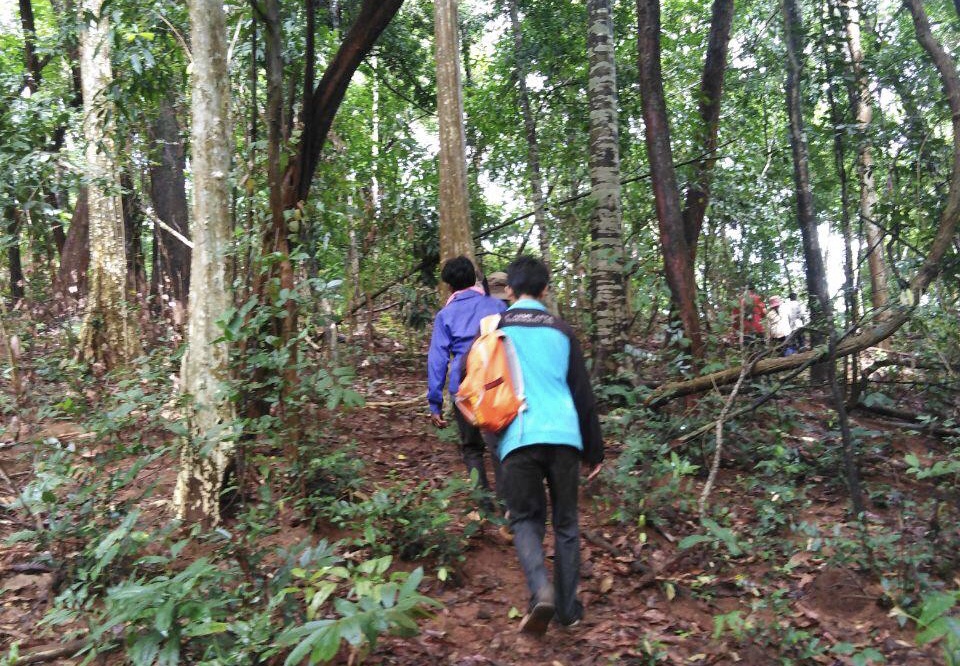
Phnom Chreap Trey Ksan community vice president Seng Ngoeun, 51, said that although Malen is a young woman, she is fully responsible in carrying out her mission.
“Because of young age, the loggers don’t listen and value her when we patrol and remove their sawmills,” she said. “Some still don’t respect her as a leader and call her by insulting words. Some say we live in the same village — why doesn’t she understand them, why is she very strict?”
When activists came across loggers on patrol, she said, Malen always moderated peacefully, even when the loggers were aggressive.
“Malen says we don’t do only our own will, but for our community,” she said. “We follow the law and conditions from our villagers’ meeting to protect our forest.”
The struggle against illegal logging is not something that can be accomplished quickly, Ngoeun said. Even after the activists catch loggers and instruct them in better alternatives, many wait a short while before moving to a different part of the forest.
“At nighttime, we face some fear as well when we remove their materials and ban them from cutting trees,” she said. “We are not sure what their intention is. We never sleep well, so we take turns to sleep. We change locations, sleeping in two to three different places for security.”
San Mala, senior advocacy officer at the Cambodian Youth Network, said he appreciated the fact that there were young environmental leaders who were brave enough to participate in conservation.
“Physically, young leader Malen is weaker than a man, but emotionally and in terms of wisdom she is extremely committed from her heart to fight in this struggle, so it’s not highly challenging for her,” he said.
Previously, he said, there have only been a few young women participating in the environmental movement due to the risk of being targeted by authorities and criminals alike.
“Not many young girls join this mission because their parents are concerned and don’t allow it,” he said.
He suggested that other local authorities could give major support to environmental activists like those from Malen’s community. The trouble came, he said, when forest crimes were carried out not by ordinary people, but by large companies or high-ranking officials.
Ministry of Environment advisor Khoy Khunchanrath said that he encouraged young people to engage in environmental protection, and that community presidents and activists had to mobilise their communities to help them join the movement.
“We don’t choose whether they are young or old,” he said. “Sometimes older people cannot compare to young leaders because they have strong willingness, time, and power to push people to join the movement.”
Khunchanrath said that activists could always reach out to official park rangers to help reduce the risk of danger.
“Environmental crimes can be committed by normal citizens and high-ranking people, so communities can report to park rangers to crack down because it’s a community forest [belonging to] the state, so we have full rights to arrest and instruct them,” he said.
“I support those young activists 100% from my heart in protecting our natural resources, and we will try our best to give support for their community and the national interest on behalf of civil servants and government officials,” he said.
Preah Vihear Provincial Administration deputy director Noun Vorleak said that she, too, supported women playing an active role in raising public awareness about the environment.
“As a young girl, she’ll confront more challenges than a man,” she said. “There will be internal and external threats but because of her great willingness she still keeps fighting.”
Lut Sang, a land program officer with local environmental NGO Ponlok Khmer Organization, said that there had been many cases of deforestation through the COVID-19 pandemic.
“Risk and challenges for environmental activists cannot be avoided, it depends on how strong their commitment is,” he said.
He said that to conserve natural resources, we cannot just rely on authorities. Citizens, and especially young people, should actively participate.
For Malen, the fight against illegal logging goes on.
“I strongly commit to protecting this community, even though there are a lot of threats, and now my family and villagers strongly support me,” she said. “That’s a huge motivation for me to reach my goals to protect forest and wild animals, and convert this community to eco-tourism.”


